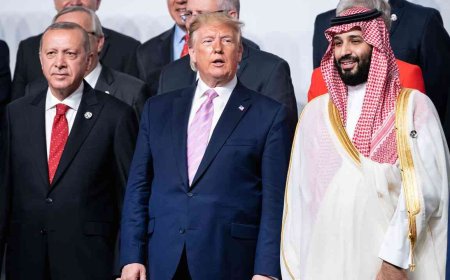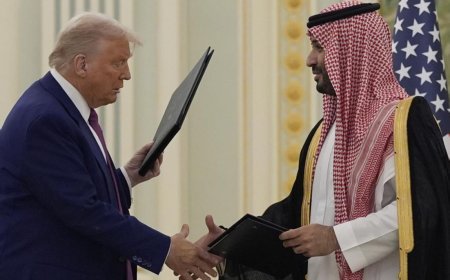India Shifts to Saudi Oil as Russian Imports Decline: Price, Supply Dynamics Drive Strategic Rebalancing
India increases Saudi oil imports as Russian supplies decline. Learn why Indian refiners are shifting to Middle Eastern crude amid price changes & supply dynamics.

India Shifts to Saudi Oil as Russian Imports Decline: Price, Supply Dynamics Drive Strategic Rebalancing
India's crude oil import patterns are undergoing a significant transformation, with a notable surge in purchases from Saudi Arabia coinciding with a sharp decline in Russian supplies. This strategic shift reflects changing market dynamics and New Delhi's calculated approach to ensuring long-term energy security amid global volatility.
Changing Import Patterns Signal Market Recalibration
Recent trade data and tanker tracking reports reveal a substantial reorientation in India's oil sourcing strategy. In December, Indian imports of Russian crude fell by 16-22%, prompting refiners to turn to Middle Eastern suppliers to fill the gap. This trend represents a notable reversal from recent years when discounted Russian oil dominated India's import basket.
The shift became particularly evident when Indian Oil Corporation (IOC), after securing its usual allocation of Russian "Sokol" grade crude, was forced to seek alternative supplies from Middle Eastern sources as Russian shipments dwindled. This pattern has repeated across India's refining sector, signaling a broader market adjustment rather than isolated incidents.
Multiple Factors Driving the Pivot from Russian Crude
Several interconnected factors are influencing India's return to traditional Middle Eastern suppliers:
Price Competitiveness Reshapes Buying Decisions
The initial pivot to Russian crude was driven by substantial discounts following geopolitical developments. However, as Oil Minister Hardeep Singh Puri has emphasized, India's energy purchases are fundamentally price-driven. With Saudi Arabia and Iraq now offering more competitive terms, the financial incentive that made Russian oil irresistible has diminished significantly.
Logistical and Compliance Considerations
Industry analysts note that complications in Russian shipping logistics and increasing concerns about compliance with international sanctions regimes have made Russian crude less attractive. Indian refiners are increasingly prioritizing supply stability and regulatory certainty, which traditional Gulf suppliers reliably provide.
Growing Competition for Russian Barrels
Increased demand from other global buyers has tightened the market for Russian crude, further eroding the substantial discounts that initially attracted Indian refiners. This heightened competition has diminished Russia's price advantage, making Middle Eastern crude increasingly competitive on a cost basis.
Financial Implications of Diversification
This strategic rebalancing carries significant financial implications. A State Bank of India research report warns that significantly reducing Russian imports could increase India's annual oil import bill by up to $9 billion in FY2026, potentially rising to $11-12 billion in FY2027. The loss of access to deeply discounted Russian crude—some grades were reportedly available at around $60 per barrel—would expose India more directly to global price volatility and higher-cost alternatives.
Strategic Rebalancing Rather Than Complete Withdrawal
Energy experts characterize this shift as strategic diversification rather than an outright abandonment of Russian supplies. India appears to be implementing a calculated rebalancing act—maintaining access to discounted Russian crude where commercially viable while simultaneously rebuilding relationships with traditional Middle Eastern suppliers to spread risk and enhance energy security.
This approach aligns with India's broader vision of energy resilience and strategic autonomy, ensuring the nation isn't overly dependent on any single supplier or region. The diversification strategy provides flexibility to respond to changing market conditions and geopolitical developments.
Also Read: Cristiano Ronaldo Joins Trump and Saudi Crown Prince at High-Stakes White House Dinner
Broader Market Implications
India's sourcing shift has significant implications for global oil markets:
-
Middle Eastern producers, particularly Saudi Arabia, are regaining market share in one of the world's fastest-growing oil markets
-
The movement demonstrates how global oil trade flows are continuously reshaped by price differentials, logistical considerations, and geopolitical factors
-
India's approach may influence other emerging economies seeking to optimize their energy import strategies
This rebalancing underscores India's sophisticated approach to energy procurement—leveraging its position as a major crude importer to secure favorable terms while maintaining supply diversity to mitigate geopolitical and market risks.
As global energy markets continue to evolve, India's strategy of maintaining flexible sourcing arrangements while prioritizing energy security and affordability positions the country to navigate an increasingly complex international oil landscape.
What's Your Reaction?










































